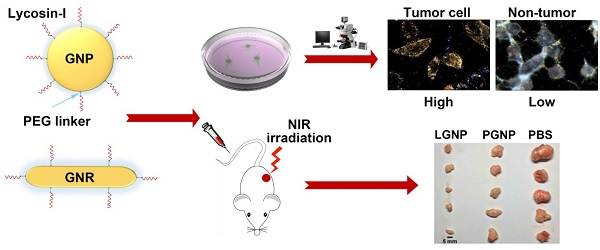当前位置:
X-MOL 学术
›
Theranostics
›
论文详情
Our official English website, www.x-mol.net, welcomes your feedback! (Note: you will need to create a separate account there.)
RBFOX3 Promotes Tumor Growth and Progression via hTERT Signaling and Predicts a Poor Prognosis in Hepatocellular Carcinoma
Theranostics ( IF 12.4 ) Pub Date : 2017-07-22 , DOI: 10.7150/thno.19506 Tianze Liu , Wenbin Li , Wenjing Lu , Miao Chen , Meihua Luo , Changlin Zhang , Yixin Li , Ge Qin , Dingbo Shi , Binyi Xiao , Huijuan Qiu , Wendan Yu , Lan Kang , Tiebang Kang , Wenlin Huang , Xinfa Yu , Xiaojun Wu , Wuguo Deng
Theranostics ( IF 12.4 ) Pub Date : 2017-07-22 , DOI: 10.7150/thno.19506 Tianze Liu , Wenbin Li , Wenjing Lu , Miao Chen , Meihua Luo , Changlin Zhang , Yixin Li , Ge Qin , Dingbo Shi , Binyi Xiao , Huijuan Qiu , Wendan Yu , Lan Kang , Tiebang Kang , Wenlin Huang , Xinfa Yu , Xiaojun Wu , Wuguo Deng

|
Activation of the telomere maintenance mechanism is a key hallmark of cancer. Human telomerase reverse transcriptase (hTERT) is the catalytic subunit of telomerase, which is highly expressed in more than 80% of tumors, including hepatocellular carcinoma (HCC). However, the exact mechanisms by which hTERT is up-regulated in HCCs and promotes tumor growth and progression is not fully understood. The aim of this study was to discover the novel molecular targets that modulate hTERT signaling and HCC growth. In this study, we pulled down and identified RBFOX3 (RNA binding protein fox-1 homolog 3) as a novel hTERT promoter-binding protein in HCC cells using biotin-streptavidin-agarose pull-down and proteomics approach, and validated it as a regulatory factor for hTERT signaling and tumor growth in HCCs. Knockdown of RBFOX3 suppressed the promoter activity and expression of hTERT and consequently inhibited the growth and progression of HCC cells in vitro and in vivo. The suppression of HCC growth mediated by RBFOX3 knockdown could be rescued by hTERT overexpression. Conversely, exogenous overexpression of RBFOX3 activated the promoter activity and expression of hTERT and promoted the growth and progression of HCC cells. Moreover, we found that RBFOX3 interacted with AP-2β to regulate the expression of hTERT. Furthermore, we demonstrated that RBFOX3 expression was higher in the tumor tissues of HCC patients compared to the corresponding paracancer tissues, and was positively correlated with hTERT expression. Kaplan-Meier analysis showed that the HCC patients with high levels of RBFOX3 and hTERT had poor prognosis. Collectively, our data indicate that RBFOX3 promotes HCC growth and progression and predicts a poor prognosis by activating the hTERT signaling, and suggest that the RBFOX3/hTERT pathway may be a potential therapeutic target for HCC patients.
中文翻译:

RBFOX3通过hTERT信号促进肿瘤生长和进展,并预测肝细胞癌的不良预后。
端粒维持机制的激活是癌症的关键标志。人端粒酶逆转录酶(hTERT)是端粒酶的催化亚基,在包括肝细胞癌(HCC)在内的80%以上的肿瘤中高度表达。然而,尚不完全了解在肝癌中上调hTERT并促进肿瘤生长和进展的确切机制。这项研究的目的是发现可调节hTERT信号传导和HCC生长的新型分子靶标。在这项研究中,我们使用生物素-链霉亲和素-琼脂糖下拉和蛋白质组学方法,对HBF细胞中的RBFOX3(RNA结合蛋白fox-1同源物3)进行了鉴定,并将其作为一种新型的hTERT启动子结合蛋白,并将其验证为一种调控因子肝癌中hTERT信号转导和肿瘤生长的因素。体外和体内。hTERT过表达可以挽救由RBFOX3敲低介导的HCC生长抑制。相反,RBFOX3的外源性过表达激活了启动子活性和hTERT的表达,并促进了HCC细胞的生长和进程。此外,我们发现RBFOX3与AP-2β相互作用以调节hTERT的表达。此外,我们证明,与相应的癌旁组织相比,HCC患者肿瘤组织中的RBFOX3表达更高,并且与hTERT表达呈正相关。Kaplan-Meier分析显示,RBFCX3和hTERT水平高的HCC患者预后较差。总体而言,我们的数据表明,RBFOX3会通过激活hTERT信号传导来促进HCC的生长和进展,并预测不良预后,
更新日期:2017-12-01
中文翻译:

RBFOX3通过hTERT信号促进肿瘤生长和进展,并预测肝细胞癌的不良预后。
端粒维持机制的激活是癌症的关键标志。人端粒酶逆转录酶(hTERT)是端粒酶的催化亚基,在包括肝细胞癌(HCC)在内的80%以上的肿瘤中高度表达。然而,尚不完全了解在肝癌中上调hTERT并促进肿瘤生长和进展的确切机制。这项研究的目的是发现可调节hTERT信号传导和HCC生长的新型分子靶标。在这项研究中,我们使用生物素-链霉亲和素-琼脂糖下拉和蛋白质组学方法,对HBF细胞中的RBFOX3(RNA结合蛋白fox-1同源物3)进行了鉴定,并将其作为一种新型的hTERT启动子结合蛋白,并将其验证为一种调控因子肝癌中hTERT信号转导和肿瘤生长的因素。体外和体内。hTERT过表达可以挽救由RBFOX3敲低介导的HCC生长抑制。相反,RBFOX3的外源性过表达激活了启动子活性和hTERT的表达,并促进了HCC细胞的生长和进程。此外,我们发现RBFOX3与AP-2β相互作用以调节hTERT的表达。此外,我们证明,与相应的癌旁组织相比,HCC患者肿瘤组织中的RBFOX3表达更高,并且与hTERT表达呈正相关。Kaplan-Meier分析显示,RBFCX3和hTERT水平高的HCC患者预后较差。总体而言,我们的数据表明,RBFOX3会通过激活hTERT信号传导来促进HCC的生长和进展,并预测不良预后,



























 京公网安备 11010802027423号
京公网安备 11010802027423号